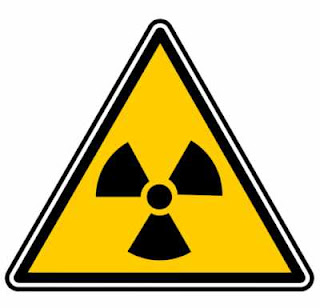L’ Independent afferma che ci sono più rischi con le nuove centrali nucleari di 3a generazione
 Le centrali nucleari di nuova generazione sono piu' pericolosi, in caso di incidente, degli impianti che dovrebbero sostituire. Lo afferma un'inchiesta del quotidiano britannico "The Independent", secondo il quale alcuni documenti di natura industriale proverebbero come, in caso di incidente, la fuoriuscita di radiazioni da queste centrali sarebbe notevolmente piu' consistente e pericolosa che non in passato. Documenti che provengono anche dalla francese Edf. Si tratta di prove, scrive il quotidiano, "ben sepolte tra le carte della stessa industria nucleare" e che "mettono in dubbio le ripetute affermazioni secondo le quali i nuovi Epr (European Pressurised Reactors) sarebbero più sicuri delle vecchie installazioni". semmai sarebbe vero il contrario: "pare che un incidente ad un reattore o al sistema di smaltimento delle scorie, sebbene più difficile da verificarsi, potrebbe avere conseguenze ancor più devastanti in futuro". In particolare, tra gli studi esaminati, " ce n'è uno che suggerisce che le perdite umane stimate potrebbero essere doppie" rispetto al passato.
Le centrali nucleari di nuova generazione sono piu' pericolosi, in caso di incidente, degli impianti che dovrebbero sostituire. Lo afferma un'inchiesta del quotidiano britannico "The Independent", secondo il quale alcuni documenti di natura industriale proverebbero come, in caso di incidente, la fuoriuscita di radiazioni da queste centrali sarebbe notevolmente piu' consistente e pericolosa che non in passato. Documenti che provengono anche dalla francese Edf. Si tratta di prove, scrive il quotidiano, "ben sepolte tra le carte della stessa industria nucleare" e che "mettono in dubbio le ripetute affermazioni secondo le quali i nuovi Epr (European Pressurised Reactors) sarebbero più sicuri delle vecchie installazioni". semmai sarebbe vero il contrario: "pare che un incidente ad un reattore o al sistema di smaltimento delle scorie, sebbene più difficile da verificarsi, potrebbe avere conseguenze ancor più devastanti in futuro". In particolare, tra gli studi esaminati, " ce n'è uno che suggerisce che le perdite umane stimate potrebbero essere doppie" rispetto al passato.Qui
e
Qui
New nuclear plants will produce far more radiation
Industry documents reveal modern reactors more dangerous in an accident than the ones they replace
New nuclear reactors planned for Britain will produce many times more radiation than previous reactors that could be rapidly released in an accident, The Independent on Sunday can reveal.
The revelations – based on information buried deep in documents produced by the nuclear industry itself – calls into doubt repeated assertions that the new European Pressurised Reactors (EPRs) will be safer than the old atomic power stations they replace.
Instead they suggest that a reactor or nuclear waste accident, althouguh less likely to happen, could have even more devastating consequences in future; one study suggests that nearly twice as many people could die.
The EPR is the most advanced of the new generation of nuclear reactors. One is already being built in Finland and one in Normandy, France. And last week President Nicolas Sarkozy announced plans to build another in Normandy, while India signed a draft accord to buy between two and six of them. The French company EDF has said that it plans to build four in Britain. Two are expected for each of two existing nuclear power station sites, Hinkley Point in Somerset and Sizewell in Suffolk.
Until now the reactors have been widely thought to be less dangerous than those already in operation, largely because they contain more safety features and produce less waste. But the information in the documents shows that they produce very much more of the radioactive isotopes technically known as the "immediate release fraction" of the nuclear waste, because they could get out rapidly after an accident.
Data in one report, produced by EDF, suggests that they would produce four times as much radioactive bromine, rubidium, iodine and caesium as a present-day reactor. Information in another – by Posiva Oy, a nuclear waste company owned by two Finnish reactor builders – indicates that seven times as much iodine 129 is produced. And material in a third, by the Swiss National Co-operative for the Disposal of Radioactive Waste, implies that they will give rise to 11 times as much caesium 135 and 137.
This happens because the reactors are designed to burn their nuclear fuel almost twice as thoroughly as normal ones. Independent nuclear consultant, John Large, says that this "changes the physical characteristics of the fuel" and increases the immediate danger if the radiation should escape. After comparing the consequences of an accident at the new EPR being built at Flamanville, Normandy with one at an existing reactor nearby, he found that, in the worst case, it would increase the number of deaths from 16,000 to over 28,000.
Areva, the French firm that designs the reactor, says that the total radioactivity of the waste is only slightly increased, but Mr Large points out that it is the very much greater part that can easily escape that is of most concern. Areva adds that the reactors are specially designed to stop radioactivity escaping, but Mr Large argues no system can be foolproof. And in an accident during the transport of waste such protection would be irrelevant.
EDF said: "We are confident that new plants can be built and run safely."
.










